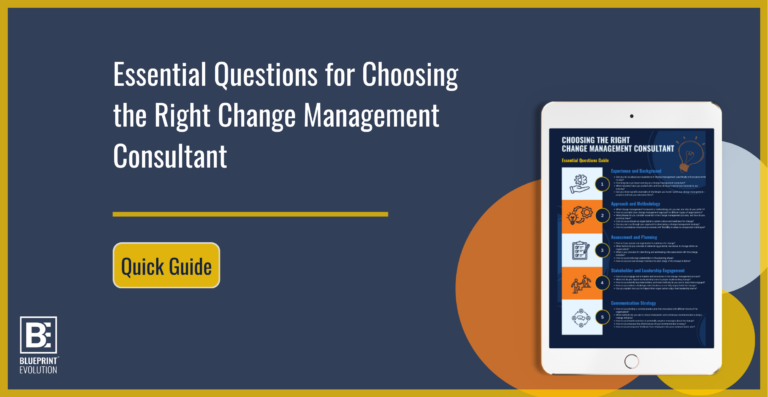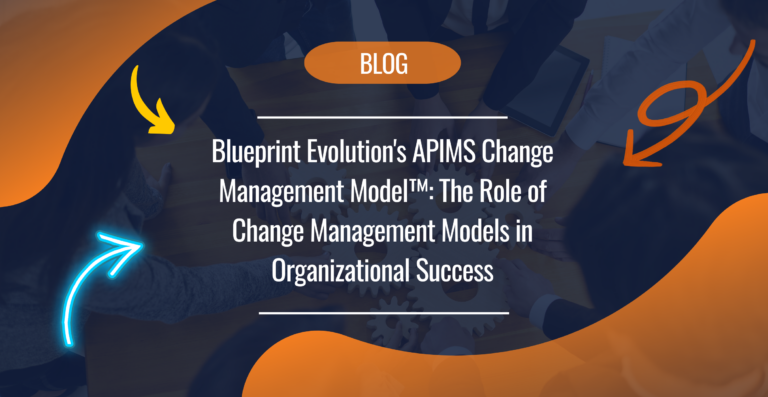Training and Skill Development for Change Management
Our Change Management Training service equips employees with the skills and knowledge needed to navigate change effectively. It includes comprehensive workshops, personalized coaching sessions, and tailored educational programs designed to strengthen capabilities and motivate confidence during your organization’s transition.
Why Change Management Training is Essential
- Enhanced Adaptability: Employees trained in change management can adjust more quickly to new processes, technologies, and strategies, reducing downtime and increasing productivity.
- Improved Morale: Understanding the “why” behind changes decreases resistance and builds a proactive attitude among team members.
- Increased Innovation: Teams that are comfortable with change are more likely to propose and implement innovative solutions.
- Stronger Leadership: Targeted training develops future leaders who can effectively manage teams through transitions.

The Blueprint Difference
Connect with us today to begin your journey towards effective change management and discover how we can help transform your practices into a strategic advantage.

Effective communication is essential in change management. It ensures transparent delivery of the reasons for change, anticipated benefits, and its impact on both individuals and the organization. As imperative components of this process, it’s critical to maintain regular updates and foster inclusive, open channels for feedback.
Engaging employees in the change process fosters a profound sense of ownership and commitment. This entails actively seeking their input, addressing concerns, and involving them in decision-making whenever possible. Through their participation, a more positive, inclusive, and collaborative atmosphere is cultivated, significantly enhancing the effectiveness of change management strategies.
Providing training and support to empower employees with the skills and knowledge needed to navigate changes adeptly helps with the growth process. This might involve workshops, coaching sessions, or customized educational programs to strengthen capabilities and nurture confidence throughout the transition.
Effective change management hinges on visible and active support from organizational leaders. Leaders are instrumental in setting the tone, demonstrating unwavering commitment, and guiding the organization inclusively through the change process. Their hands-on involvement fosters employee trust and confidence, ultimately driving the successful implementation of change.
Change Readiness and Planning involve assessing the organization’s preparedness for change, identifying potential challenges, and formulating a comprehensive change management plan aimed at fostering trust and securing buy-in throughout the transition. This plan encompasses strategies to address resistance and outlines the specific steps and milestones of the change initiative.
- Communication & Marketing Strategies
-
Effective communication is essential in change management. It ensures transparent delivery of the reasons for change, anticipated benefits, and its impact on both individuals and the organization. As imperative components of this process, it’s critical to maintain regular updates and foster inclusive, open channels for feedback.
- Employee Involvement & Engagement
-
Engaging employees in the change process fosters a profound sense of ownership and commitment. This entails actively seeking their input, addressing concerns, and involving them in decision-making whenever possible. Through their participation, a more positive, inclusive, and collaborative atmosphere is cultivated, significantly enhancing the effectiveness of change management strategies.
- Training & Skill Development
-
Providing training and support to empower employees with the skills and knowledge needed to navigate changes adeptly helps with the growth process. This might involve workshops, coaching sessions, or customized educational programs to strengthen capabilities and nurture confidence throughout the transition.
- Leadership Engagement
-
Effective change management hinges on visible and active support from organizational leaders. Leaders are instrumental in setting the tone, demonstrating unwavering commitment, and guiding the organization inclusively through the change process. Their hands-on involvement fosters employee trust and confidence, ultimately driving the successful implementation of change.
- Change Readiness & Planning
-
Change Readiness and Planning involve assessing the organization’s preparedness for change, identifying potential challenges, and formulating a comprehensive change management plan aimed at fostering trust and securing buy-in throughout the transition. This plan encompasses strategies to address resistance and outlines the specific steps and milestones of the change initiative.











